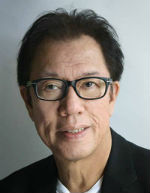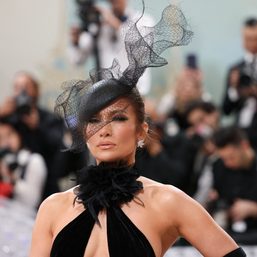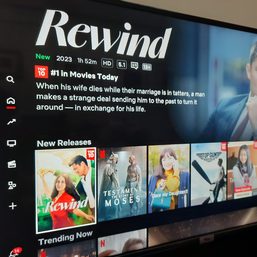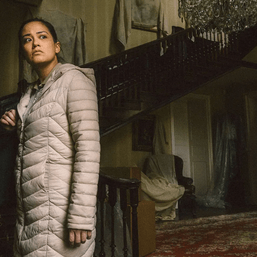SUMMARY
This is AI generated summarization, which may have errors. For context, always refer to the full article.

What is the first thing that demarcates a Filipino from the Philippines and say, a Filipino Singaporean like me, somebody born and bred in Singapore?
Somebody embraced by all things Singapore.
Not to sound too full of myself, I posed the question to Filipino Singaporeans like myself and Filipinos I admire and who I have learned to trust to give me an honest response. There were a number of cogent answers: One, true Singaporeans love their food spicy; Filipinos do not. Perhaps, a few do, but with a degree of circumspection and caution. Okay, that’s a useful observation, watching the eating habits of others.
What else? Singaporeans speak a fractured form of English, also known as Singlish. Filipinos make do with Taglish, while some, perhaps to please their Singaporean sweethearts, try to pick up Singlish, with hilarious results:
Filipino girl: “You want me go Orchard Road? What time good for you?”
Singapore man: “No lah, I come pick you up.”
“Eh, you drive? What car you drive?”
“Oh Mercedes, what color? Red?”
“No lah, white.”
“OK, what time you fetch me?”
“Two can?”
“Ok, I wait you backside my block.”
And so on. It’s a strange conversation, but heck, it gets results and that’s what communication is all about. But seriously, how can you tell a Filipino Filipino and a Filipino Singaporean apart? (READ: Don’t call me Madam)
Sure, Filipino Singaporean men don’t wear sando (sleeveless undershirt), bermudas, and flip-flops, and don’t go around looking for a basketball court. But these days, with everybody shopping from the same shops in Bugis, Lucky Plaza and did I say, NorthPoint, everybody’s wearing the same togs. Hard to tell the difference, although I do note that a good number of Filipino men sport handsome mustache, ala Zapata.
For women, is it the way they dress? Look? The distinguishing feature between Filipino Filipinos and Singaporean Filipinos, I am told, is in the way they speak. Or, rather, their choice of words.
You will note that Filipino Filipinos have it in their nature to address anybody other than their compatriots as Sir and Ma’am. I tell my house manager not to call me Sir the first time she did that. She looked confused.
Calling me Sir makes me more important than I really am, I told her gently. Besides, Sir makes me seem like an old gentleman. I mean I may be old, but I am not so sure if I am somebody from landed gentry. No, definitely not. I am no gentleman, but a street-wise old codger, I told her. She looked even more confused and settled on calling me Kuya (older brother). Not a bad compromise. Better than being called uncle, I suppose.
But to get to back to my point. No Singaporean Filipino ever calls anybody else Sir. Calling a fellow Singaporean woman a Ma’am might even offend her. Makes her sound very, very old and square. Even spinsterish. No woman, of any race or vintage, would want to be identified this way, I am sure.
As a sign of respect, we address another person, especially one older and in a position of authority as Mr Tan, Mr Smith, Mr Ahmad, Mr Rizal, whatever, or as Mrs Lim, Mrs Halimah, Mrs Nair, Mrs Cruz, whatever.
How did this all begin – this dropping of the Sir and the Ma’am into the dustbin of history?
It began soon after Singapore acquired independence in the 1960s. Prime Minister Lee Kuan Yew, bless him, told us then we should rid ourselves of our colonial mentality of obeisance or servitude, or words to that effect, and address one another as Mr or Mrs. No more Sirs and Ma’ams. We are a nation of equals. No more kowtowing to the white men. They are not superior to us in any way. And so we strove to become equals in the world of unequals. I enjoyed calling my boss by his first name. But then, he also insisted on being addressed that way.
Has it worked? See for yourself. Singapore has come some way in being equal in the world of unequals. I have worked in many parts of the world, and have never had to call anybody Sir or Ma’am.
I have addressed rulers as Your Highness and ambassadors as Your Excellency. But only out of courtesy and respect to the position, not because they have an ordained right to be superior to the rest of their fellow men.
Oh yes, I do add a cheery Yes, Sir, when addressing my difficult friends – to persuade them to see things my way. Like what a good used-car salesman does when he knows he has got you hooked on buying that car which is on its last legs. Will you be joining us for drinks after work? my colleagues ask me, knowing that I am not that fond of late-night drinking. Yes, Sir, I tell them, with all the sincerity I can muster.
Please don’t forget to buy bread – and some fruit, my wife tells me, as I leave for the office. Yes, Ma’am, I say, hastening to do her bidding. – Rappler.com
Veteran journalist Clement Mesenas has worked 40 years in the profession, holding senior editorial positions in the The Straits Times, Kuwait Times, Dubai’s Gulf News and Mediacorp’s TODAY newspaper. He is one of the founding editors of Pinoy Star Magazine and OFW Pinoy Star. Both publications are content partners of Rappler.
Add a comment
How does this make you feel?



















There are no comments yet. Add your comment to start the conversation.